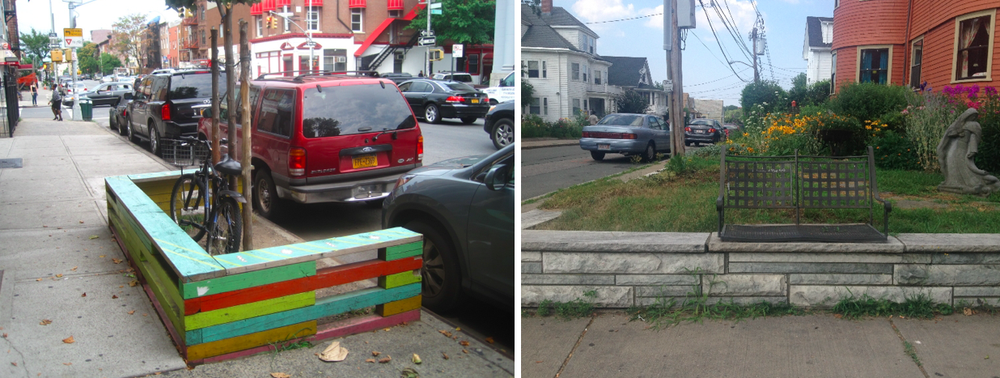The least you can do to make a big difference where you live
BY
We've scoured cities all around the world for small ideas with huge potential, and asked some of our favorite urban thinkers for tiny ways to make outsized transformations. And we divided them all up into six sections to help focus your efforts. We hope this serves as a resource for urban inspiration—and that you'll contribute your own thoughts in the comments.
On Your Street
1. Redesign a crosswalk. Last year, a handful of Seattle streets were reborn when a rogue designer painted colorful new crosswalks. Instead of wiping them away, the city made them a permanent part of the landscape, and even appropriated the idea, setting up a community crosswalk program so other neighborhoods could create their own colorful street art. Between promoting community pride and increasing pedestrian visibility and safety, it’s a quick, colorful step forward.
2. Green your parkway. Okay, there’s gonna be a ton of regional slang to fight through here: You know that little sliver of property between the sidewalk and the curb? Whatever you call it, replace whatever’s there with a stormwater garden that allows water to naturally percolate into the ground. It will not only alleviate flooding on your street, it will filter and clean the water on its way back underground.

3. Make a seat. "One small thing a person can do for your city is build an attractive bench and place it where it's needed. There is an urban seating deficit the world over and some of my favorite cities are those where people frequently build their own street seats. Here are bunch of examples we once catalogued in New York City." — Mike Lydon, The Street Plans Collaborative
4. Create a little free library. Libraries may change and evolve, but the pleasure and joy of reading a book remains. In Dallas, the Little Free Libraries/Libros Libres project helped construct and decorate makeshift shelves positioned across the community, part of a wider community literacy project. Inspired by the wider Little Free Libraries movement, it’s creating a real-life literary community on city streets.
5. Start documenting your street. Share the beauty of your surroundings, whether it’s through an Instagramhashtag or a personal photo project. Once you start snapping pictures of everyday life there’s no telling what you’ll find or who you’ll meet.
6. Add additional bike parking. While artful racks and bikeshare stations are sprouting up everywhere, popular roadways and sidewalks can still become overcrowded with riders angling to anchor a U-Lock. Small businesses can help make a difference by placing some DIY rackspace out front to make the parking situation more bearable. Here are some creative solutions.
7. Plant a tree. Shade, serenity, sustainability—trees add so much to the urban landscape and ask so little. Many cities give away free trees, have planting services, or require tree planting permits, so check your local rules before you start digging.
8. Pick up more poop. "I have the habit of trying to pick up someone else’s dog’s poop every time I pick up my own. I am talking about old poop, as opposed to ambushing another dog’s poop-in-progress." — Michael Bierut, partner, Pentagram
9. Forge a fancier garbage can. If there isn’t money in the municipal budget for murals or street art, there’s still creative ways to beautify the streets. Providence, Rhode Island, turned everyday urban hardware such as fences and trash cans into colorful creations with the help of a local nonprofit, The Steel Yard. By commissioning artists to create striking bike racks and railing, the city gets more exciting, eye-catching infrastructure.
10. Set up a small, interactive community art project on your corner. "Share your art with people in small ways. With our As You Wish project, our artists made versions of people’s wishes with cheap materials we had on hand. With Forensic Friends, people stopped by our artists on the street and described a friend like you would if you were doing a forensic sketch of a criminal. But, instead, the artist draws a portrait of a friend from the description. With Listening Booth, we simply have somebody sit and listens to anybody who wanted to talk." — Jim Walker, founder and director of the Big Car Collaborative.




